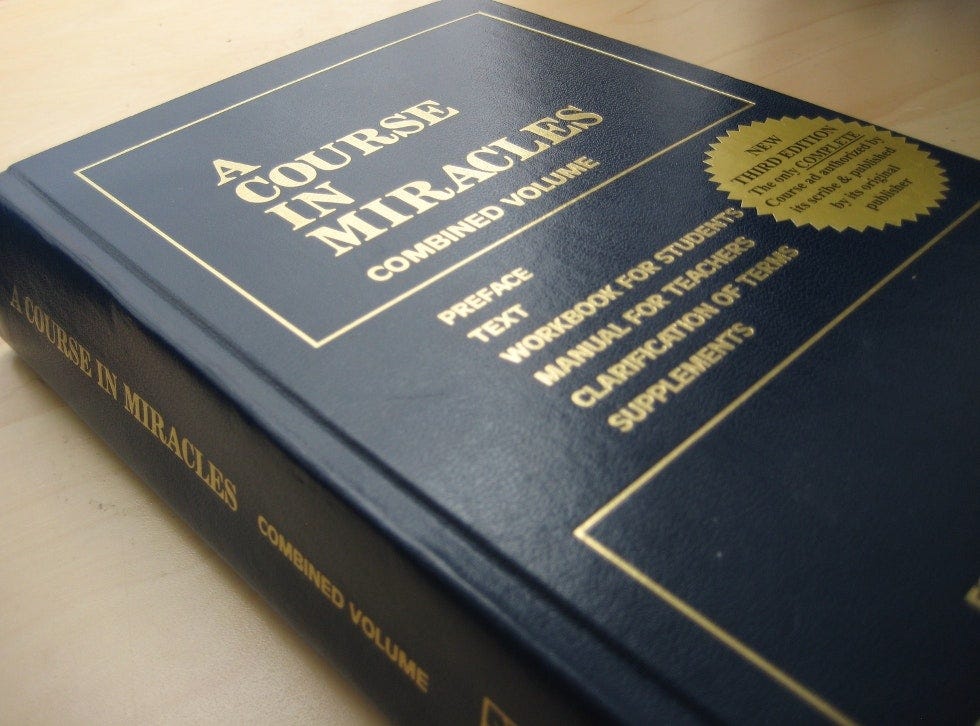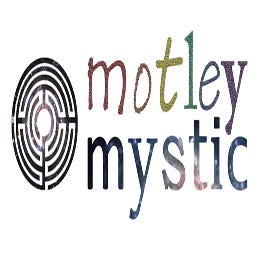
I can't watch cable news anymore. It's weird for me, since I spent a big chunk of my journalism career working as a news writer and radio anchor for CNN. Even after I quit cable news as a job, I would keep the TV on in my home office, tuned to MSNBC or CNN. I thought I needed the noise of a newsroom to do my work, but I found myself spending more time yelling at the talking heads on the screen than actually accomplishing any work.
The TV had to go. Now, I work in silence – something I thought would be impossible for me to do. It's more self defense than anything, really, because as soon as I turn on a cable news network, I go unconscious, reverting back to my old habit of screaming at the screen, launching my impotent rage at people who will never hear me.
That's what cable news is meant to do, y'know, keep us in an unconscious, fearful state. I've been part of the mechanism that chooses which news to emphasize every day. There are a lot of really good, heartwarming and uplifting news out there, but it was never chosen for the top stories. Our ego has no interest in hearing warm, fuzzy news. The saying is, "If it bleeds, it leads," and that's what the media feeds us on a daily basis, because it is the ego's main mechanism of control. We're much more apt to believe in a chaotic, evil, and hopeless world if we're glued to the media's messages about it.
I read just this morning some good news, though: Overall news consumption has declined. Fewer of us are watching cable news, checking our news apps or engaging with news on social media. Researchers say we're exhausted by a daily diet of chaos and hopelessness. Viewership for CNN and MSNBC have dipped 47% and 33% respectively in the first half of this year. Fox News viewership, however, is up 12%, but this is the favorite station of those determined to remain unconscious.
For those of us, however, who are intentionally seeking to remain in a state of conscious awareness in the world, limiting our diet of news from any outlet is a good first start to remaining wholly conscious. I would like to think that it's not just an exhaustion with the state of the world that has people tuning out cable news in droves, but more of an exhaustion with our egoic unconsciousness and a yearning to be more awake and aware in the world. I truly believe more of us are realizing that it is our eager participation and belief in the ego's chaotic and hopeless world that is keeping it alive, and we're starting to realize that we must withdraw ourselves from it if we really want to change the world.
It feels good to turn away from the unconsciousness the news induces in us, but we must find the tools we need to remain as awake and aware as possible so we can live more fully from our higher Divine Self in every possible moment. We're taught, even in the metaphysical world, that the ego is a problem that needs to be solved. We're instructed on ways to attempt to annihilate it, overcome it, transcend it, let it go, or leave it behind. This, however, is a trick of the ego itself. If it can keep us struggling with it as a problem to be solved, then it can keep us on its good old treadmill of "seek but do not find."
A Course in Miracles, in Chapter 5, gives us a different tool. Instead of struggling for ways to "solve" the problem of our ego, we allow it to "dissolve" by focusing not on the ego itself, but on the unloving thoughts it produces in us.
"Every loveless thought must be undone, a word the ego cannot even understand. To the ego, to be undone means to be destroyed. The ego will not be destroyed because it is part of your thought, but because it is uncreative and therefore unsharing, it will be reinterpreted to release you from fear. The part of your mind that you have given to the ego will merely return to the Kingdom, where your whole mind belongs."
We cannot destroy our ego, because it truly is a part of us – an unhealed part that spends all its time miscreating in the world by being an agent of fear, chaos, greed, despair, selfishness and separation. If we stop focusing on its penchant for these things and simply see the thoughts it creates in us as something in need of healing, then we don't let the ego go – it lets go of us.
Those loveless thoughts are what Eastern religions call our "samskaras," or what psychologists might call our "shadow." They are the patterns we hold in our bodies, from past events that were either traumatic or pleasant, that we have built our lives around. Something happened in our past that made us feel unsafe, and we have created patterns of coping – avoiding things that make us uncomfortable or trying to arrange the world so we don't have to deal with our pain. Conversely, we also have pleasurable patterns comprised of good things that happened to us that we want to keep and relive. Those stories we tell about our glory days or the good old days feel positive, but they, too, are blockages to the energy of consciousness that wants to flow through us.
To heal the ego to a point of its dissolution means we must let go of all of these blockages, whether we consider them "good" or "bad," and seek to not create more of them. We do this by recognizing our patterns that protect us and seek to heal them and then not produce anymore new samskaras by letting things go more immediately than we have in the past.
How? By starting now to notice when we go unconscious and what our triggers are. Cable news is a trigger for me. I immediately lose my sense of conscious presence in the world and am caught up in the chaos. Where are you losing consciousness? In the news? In political arguments? On social media? Encounters with family, friends or those you consider enemies?
One way to begin to practice staying awake and present is by seeing everyone you meet as a representation of God. A Course, in Chapter 8, says whenever we "meet anyone, remember it is a holy encounter. As you treat them you will treat yourself. As you think of them you will think of yourself. Never forget this, for in them you will find yourself or lose yourself. Whenever two Children of God meet, they are given another chance at salvation."
To be able to see every meeting with another as a holy encounter, we must be ready to be present to them, to give up our grievances against them, forgive them, and most importantly, we must be ready to serve them. This may feel like a tall order, so start somewhere simple. Practice on friends and loved ones first – greeting them in that spirit of openness and love. After a while, try it with strangers in the grocery store or Walmart. Just gaze softly at them and remind yourself you're meeting yourself in disguise. As you treat them, you also treat yourself. When we can make every encounter a holy encounter, then we become more conscious and awake in the world, which will help us see our egoic patterns and heal them. Over time, our ego gets smaller and smaller until it is completely dissolved and subsumed back into our higher Divine Self, and we find that we become incapable of holding grievances or attacking ourselves or others.
There is no need to solve the problem of our ego. The word "solve" comes from the Latin solvere which means to "loosen, or unfasten." The word dissolve has the same root word of "solve" but the "dis" means "apart." While we must take action to loosen or unfasten something, the "dis" in dissolve invites us to simply allow the ego to melt away instead of trying to actively resist or overcome it.
If there's anything you need to give up, it is whatever makes you go unconscious or feel like you must work hard to overcome your ego. This is the practice that changes and ultimately saves the world. Teacher and author Eckhart Tolle says we always need a segment of people – or what Jesus called a "remnant" – who are willing to practice open awareness in the world, encountering everyone as Holy and allowing their ego to melt away into wholeness.
If you need something to tune in to – watch your ego and get wise to its tricks. As you get more skilled in staying in conscious awareness, you'll begin to see it melting away into its whole, healed state. That's better show than anything on cable news.
Are you enjoy The Motley Mystic? If so, why not share it with your friends? It’s free to subscribe!
Take 20 with Candace
This week’s Take 20 is from Jubilee! Circle's July 10, 2022, celebration: “The Humanity of Revolution.” The real revolution is on of the heart.
If you wish to support my work, please consider making a donation to Jubilee! Circle.
Want to learn more about A Course in Miracles?
Jubilee! Circle hosts an informal discussion group about A Course in Miracles every Wednesday night at 7:30 p.m. Eastern Time. If you’re in the Columbia, SC area, you can join us in-person at 6729 Two Notch Road, Ste. 70 in Columbia. If you’re anywhere else in the world, join us by Zoom using the link below. Whether you’re new to ACIM, or have been studying it for years, this is a low-pressure, friendly environment to learn more and grow together! Join us:
Zoom link: https://us02web.zoom.us/j/86088245457?pwd=bWd6QzhscGlUYnFnYUU1dy9uTUVMZz09
You can now read The Motley Mystic and all your favorite Substack authors through their new app! Download it today.
About the Motley Mystic:
The Motley Mystic is an online community for people who have realized that the truth speaks with many voices. There is no one religion, philosophy, institution or dogma that captures the whole Truth and nothing but the Truth. No one needs to swear allegiance to one line of thought or belief to discern Truth, because Love is the only thing that’s real. That’s what we explore at the Motley Mystic - all the tools and strategies we need to remove our barriers to Love and live fully as our true, Divine Self.
Candace Chellew is the founder of Motley Mystic as well Jubilee! Circle, an interfaith spiritual community in Columbia, S.C. She is also the author of Bulletproof Faith: A Spiritual Survival Guide for Gay and Lesbian Christians published in 2008 by Jossey-Bass and the founder and senior editor emeritus of Whosoever: An Online Magazine for LGBTQ People of Faith. She is also a musician and avid animal lover.





"Those loveless thoughts are what Eastern religions call our "samskaras," or what psychologists might call our "shadow." They are the patterns we hold in our bodies, from past events that were either traumatic or pleasant, that we have built our lives around. Something happened in our past that made us feel unsafe, and we have created patterns of coping – avoiding things that make us uncomfortable or trying to arrange the world so we don't have to deal with our pain."
I've got something going on with me lately, where I have swings of mood from energetic, hopeful, a little chaotic to crash and burn, what's wrong with me, I'm exhausted stages. So what you've written here reminds me that there are old patterns lingering, triggers that I may not even notice but dig their claws in, and my ways of coping --- which include a lot of avoidance. Thank you for sharing this with me.